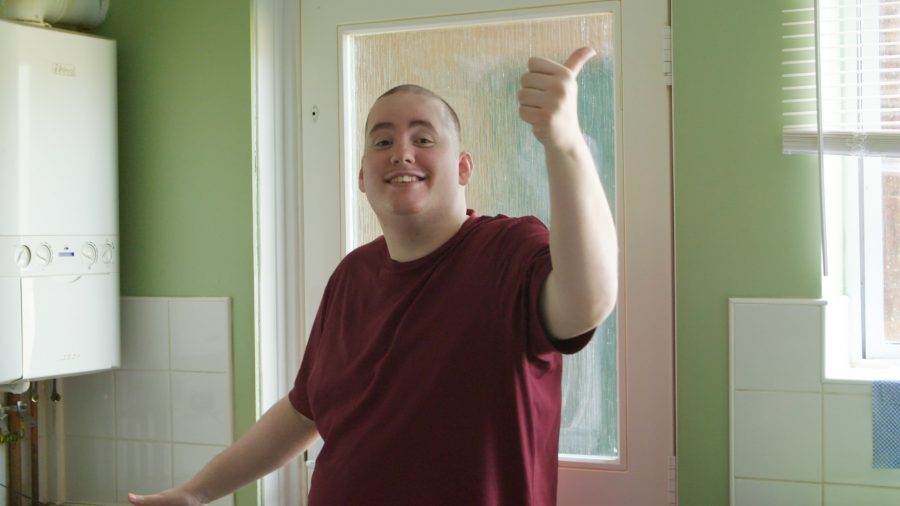When Mark and Julie Neary adopted five-year-old Steven, they never imagined that 16 years later they’d be fighting for his right to simply live at home. It was a fight that lasted almost a year. After all, why would they think that was a risk? Steven was just your every day kind of kid. He loved football, ABBA, and Mr Bean. He also lives with severe learning difficulties.
“His childhood was pretty normal really,” explains Mark. “He went to a local special needs school, we would go to football, we would go to concerts. Just normal kinds of stuff. Being autistic, once Steven gets into something he’s kind of into that thing for the rest of his life. So those groups he picked up on as a kid – Abba, Take That, The Beautiful South – if you asked him today he would still name those three. It’s the same with his television programmes. Mr Bean, Fawlty Towers, Gladiators.”
Routine is key to surviving everyday life
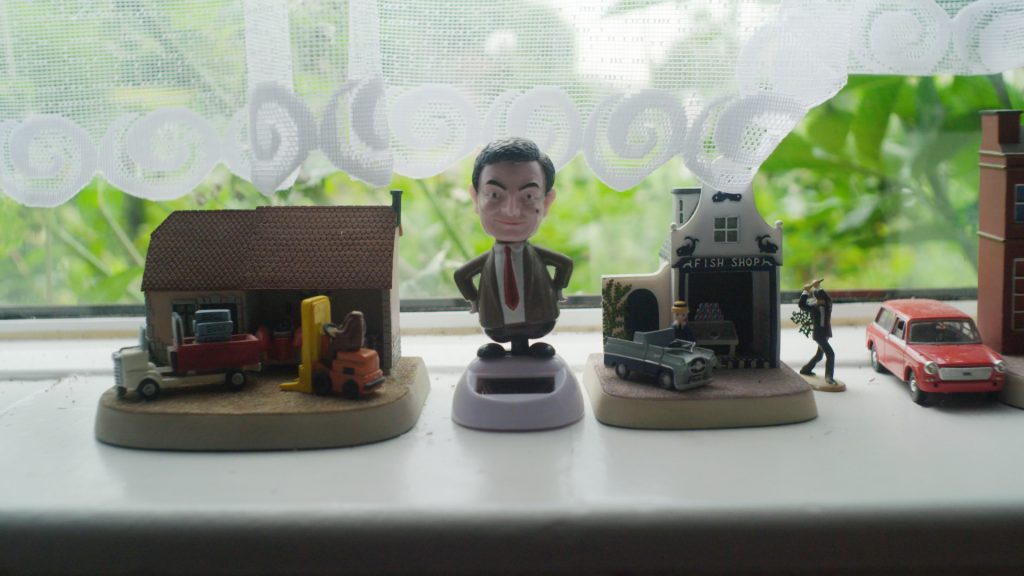
Image Credit: Mike Tamman & Jack Satchell / RightsInfo
For Steven, routine is really important. Every weekday he’ll have the same breakfast of fresh fruit, always with bananas, grapes, oranges and pears. He plans his life with a chart on the living room wall that shows a picture of which support worker will be staying with him on which day, and what activities they’ll be getting up to that day. His dad Mark, now a widower, sees him virtually every day as well.
His initial reaction will be one of real anxiety. His body will start to become quite tense, the pitch of his voice goes up.
“If we know there’s going to be a change to his routine coming up, we have to work quite hard to prepare Steven for that change,” adds Mark. “If it’s an unexpected break in the routine that’s when life can get a bit more hairy. His initial reaction will be one of real anxiety, his body will start to become quite tense, the pitch of his voice goes up. The only thing you can do in those moments is just to talk really quietly, repeating ourselves, constant reassurance that what hasn’t happened isn’t the end of the world.”
Christmas 2009 was ‘unique’
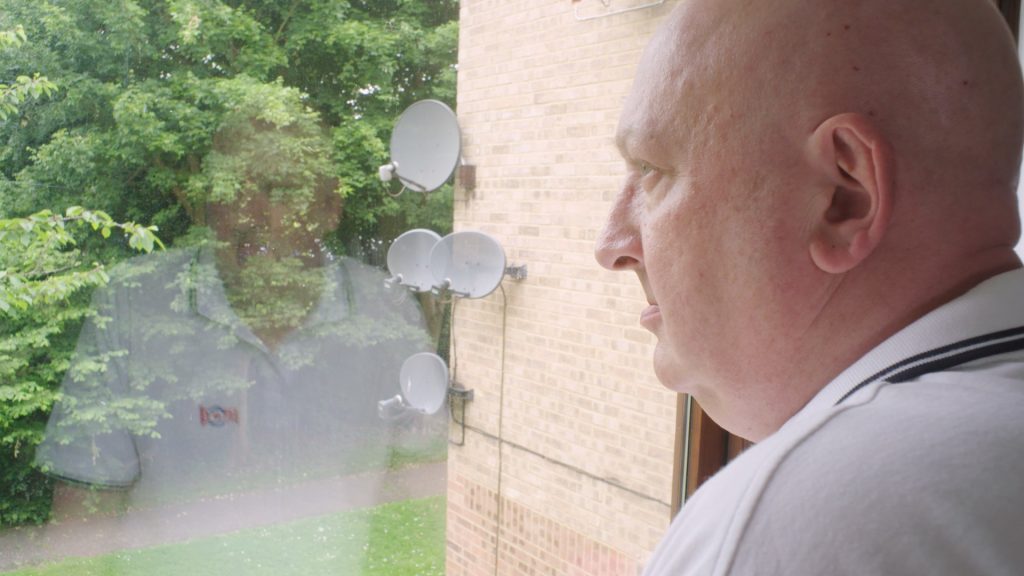
Image Credit: Mike Tamman & Jack Satchell / RightsInfo
This routine – or lack of a routine – is exactly what makes Christmas difficult. While the day itself is fine – there’s a routine, presents, turkey – it’s the run up that’s more tricky. Support workers go on holiday, swimming pools shut for the festive period, and the routine goes out the window. “Christmas 2009 was pretty unique really,” says Mark. “It was the first Christmas we were having in our new flat and I went down with flu. It’s intense being with Steven because he’s talking all the time and wants you to engage with him. If I’m feeling under the weather it doubles the normal pressure. I remember going to work the day before New Years’ Eve and I suddenly felt really dizzy.”
It’s intense being with Steven. If I’m feeling under the weather it doubles the normal pressure
Previously, when things got a bit much Mark would make use of a local respite centre until he was “back on his feet.” After using the centre for two years, Steven knew the staff and it was a familiar place, so when they said they had a bed free until Saturday, it seemed like the logical solution. But this time Steven, now 21, didn’t take well to his surroundings, and the social workers suggested moving him to a positive behaviour unit for a fortnight. “It really did seem like the best thing to do at the time,” adds Mark. Stephen wasn’t to come home for 359 days.
‘He was in real deep distress’
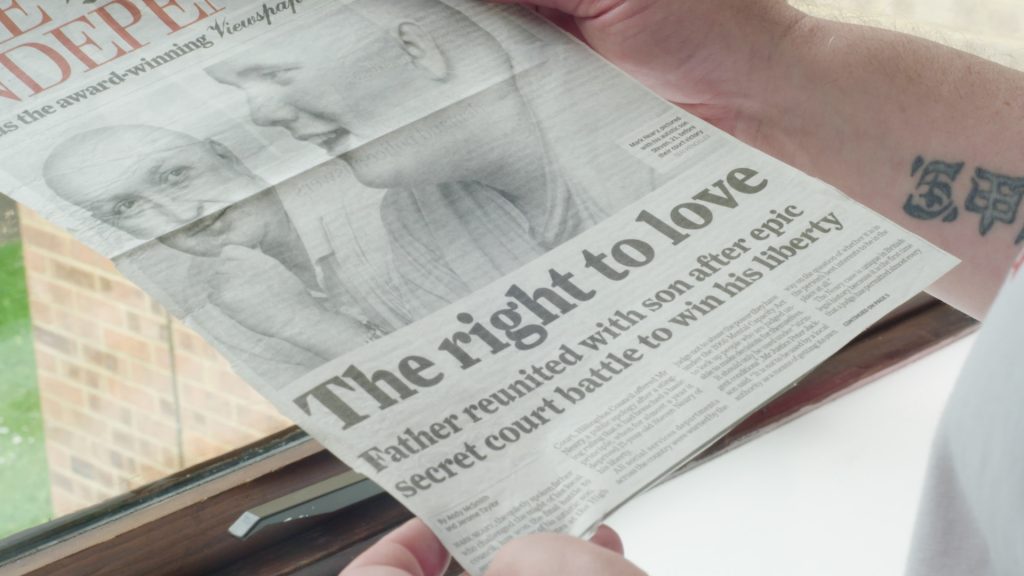
Image Credit: Mike Tamman & Jack Satchell / RightsInfo
Steven wanted to come home, and his distress soon turned to lashing out. Within the first week, the centre had recorded 26 incidents of him lashing out. However, Mark had no idea what was happening, as staff had cut all contact with his son. “When I started to find out what was going on, to me it was obvious Steven’s behaviour was a sign of the real deep distress he was in,” says Mark. “It never occurred to me for one moment when I made that phone call that it would take so long to get Steven back home.” During the year Steven was away, he tried to break out of the centre twice.
Desperately searching for a way to bring Steven home, Mark attended hundreds of meetings with the council, but was insistently told they know what’s best for his son. Eventually he managed to make contact with a solicitor and barrister, who were able to get the case to the Court of Protection in just three weeks. The judge immediately agreed Steven should go home. It’s also then that Mark realised that Steven’s human rights had been breached.
His whole case rested on his human rights
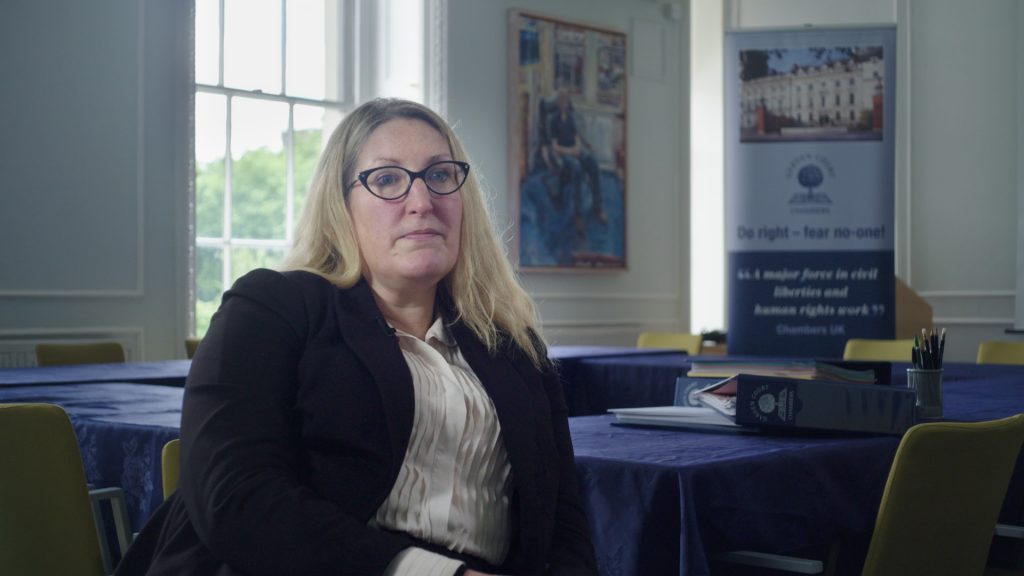
Image Credit: Mike Tamman & Jack Satchell / RightsInfo
We all have human rights, and they protect the fundamental freedoms we all value. We all have a right to family life, enshrined in law through Article 8 of the Human Rights Convention. Similarly, we have a right to liberty, protected by Article 5.
“I got a call from a solicitor who told me about a family that were really struggling,” explains Amanda Weston, a barrister at Garden Court Chambers. “This was a family that was just going about their business, just trying to cope with the everyday stresses that we all have. Steven has some special needs, Mark has has a job which is stressful and difficult. It’s a set of circumstances that could face any family at any time.”
Human rights can give them that voice
“There are many families in situations where they feel powerless. There are many families who would like to have more of a say in the treatment or care of their loved ones and human rights, and particularly Article 8, can give them that voice.”
A family reunited – thanks to human rights
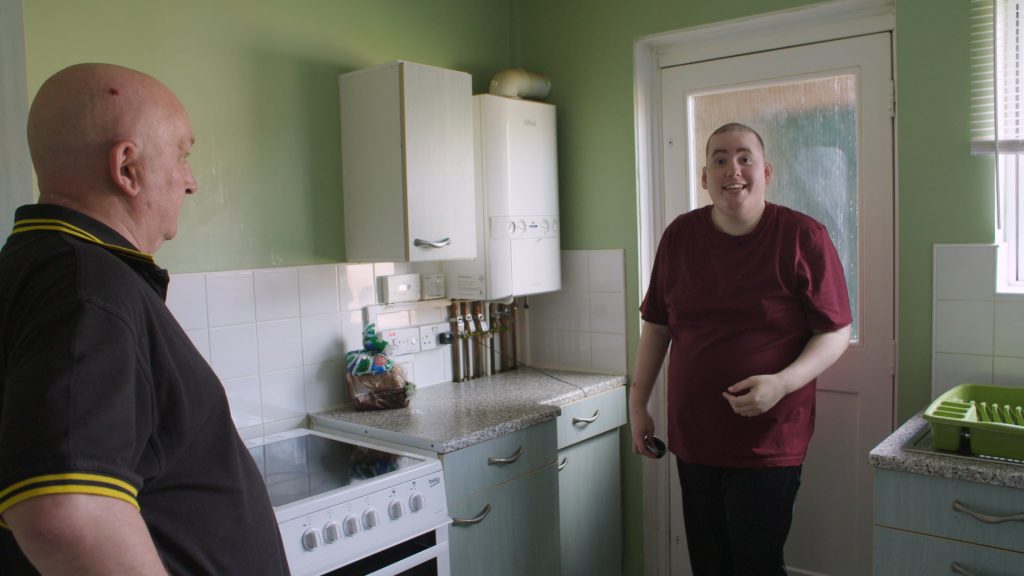
Image Credit: Mike Tamman & Jack Satchell / RightsInfo
At the High Court, the judge agreed Steven’s rights to family life and liberty has been breached, a clear example of how human rights can help to stand up for any of us who have been wronged by the state. They offer vital protections for the things we most take for granted – the right to live together as a family, or to decide which care is best for us.
“I can remember standing on the high court steps being in tears,” says Mark. “But there was no drama at all with Stephen the day he came home. He put his bag down in the hall, and said he wanted to watch Mr Bean in America. I remember sitting down watching him watching it and it taught me the year was a year worth fighting for.”
All these kinds of tiny details that make his life fulfilling, that’s the value of The Human Rights Act
“It didn’t occur to me at all that his human rights were being breached, but when his barrister brought it up it seemed blatantly obvious. All the kind of things we take for granted; Steven going into the kitchen, and pouring himself a strawberry milkshake, being able to watch Countdown on the telly, all these kinds of tiny details that make his life fulfilling, that’s the value of the Human Rights Act.”
Want to read more about Steven and Mark’s story?
- Read our beautiful infographics on the right to liberty and family life
- See 50 human rights cases which changed Britain
Subscribe to RightsInfo and follow us on Facebook and Twitter for more human rights news, views and information.

